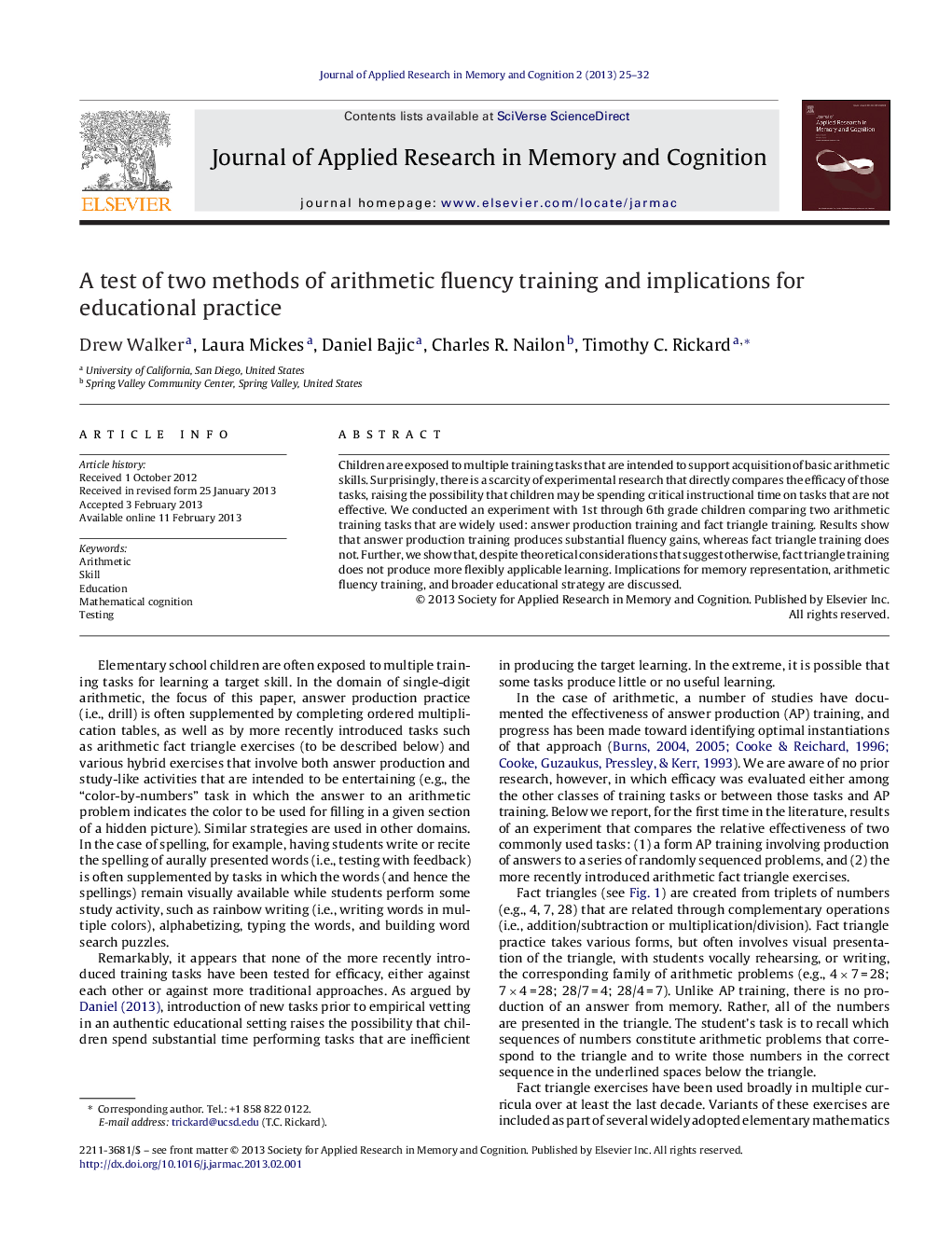| Article ID | Journal | Published Year | Pages | File Type |
|---|---|---|---|---|
| 881579 | Journal of Applied Research in Memory and Cognition | 2013 | 8 Pages |
Children are exposed to multiple training tasks that are intended to support acquisition of basic arithmetic skills. Surprisingly, there is a scarcity of experimental research that directly compares the efficacy of those tasks, raising the possibility that children may be spending critical instructional time on tasks that are not effective. We conducted an experiment with 1st through 6th grade children comparing two arithmetic training tasks that are widely used: answer production training and fact triangle training. Results show that answer production training produces substantial fluency gains, whereas fact triangle training does not. Further, we show that, despite theoretical considerations that suggest otherwise, fact triangle training does not produce more flexibly applicable learning. Implications for memory representation, arithmetic fluency training, and broader educational strategy are discussed.
► Two methods of arithmetic fluency instruction are compared. ► Answer production training produces large gains in performance whereas fact triangle training does not. ► Neither training strategy fosters transfer to problems presented in atypical formats, indicating high specificity of learning. ► Results suggest that training tasks should be empirically vetted before they are introduced into the curriculum.
